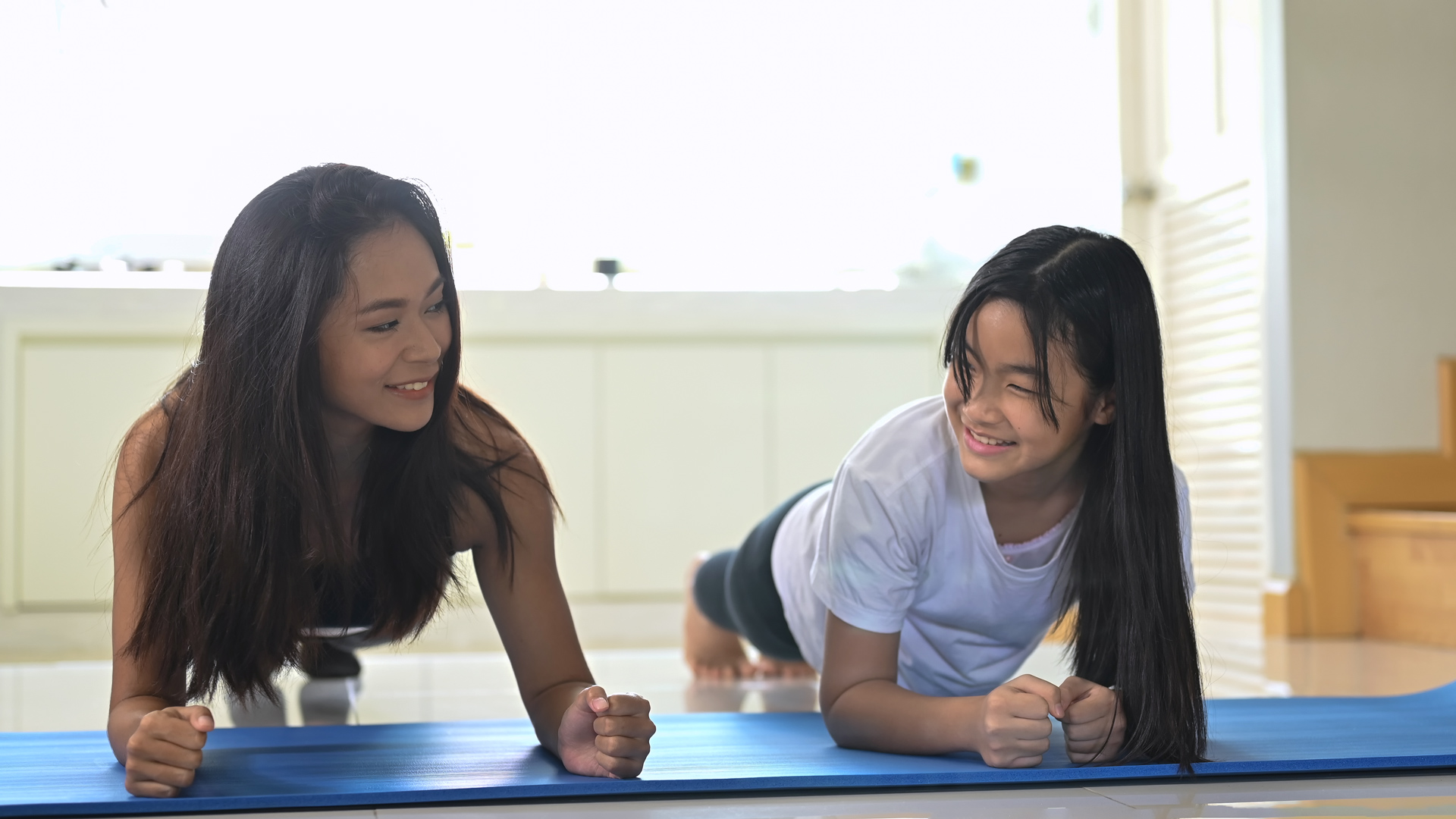For Catholic Education Sunday this year on 12 September, ACCS is inviting students and staff of Catholic schools across Singapore to contribute recordings for a virtual choir, singing the recessional hymn of our live-streamed Mass.
To enable young children to participate, they only need to sing the AMEN, as demonstrated in this video.
Catholic Education Sunday has been celebrated since 2017, bringing together our Archdiocese’s educational community, forming 50,000-over students from nursery, pre-school and primary school to secondary school and junior college.
Despite Covid-19 restrictions, we can still find creative means to maintain our communal ties and worship together from our homes – the domestic church.
With this song, we want to bless all our Catholic schools, religious families, students and educators, as well as the Catholic Church in Singapore, especially in our 200th year.
Instructions on how to participate can be found here, with the four main choir parts: soprano, alto, tenor and bass. Current students are encouraged to wear their school uniforms while singing. Please upload your recordings by Saturday 4 September 2021, 11pm. Late submissions may not be used.
At the turn of the 19th century, when only the nobility and middle class had access to education, St Magdalene of Canossa, the daughter of a marquis and a countess, spent her inheritance providing free education for the poorest of the poor.
She witnessed widespread suffering and unrest in her hometown Verona, caused by the Napoleonic Wars. Magdalene reasoned that educated Christian wives and mothers were the best way to form wholesome families, creating a virtuous society. For her, the aim of education was to lead people to experience God’s love.
In Singapore, the Canossian Sisters, or Canossian Daughters of Charity (FDCC, Figlie Della Carità Canossiane), founded Canossa Convent Primary School and Fatima Home on 15 August 1941, providing accommodation for thirty-one orphans.
Watch the Canossaville 80th Anniversary Commemorative Video here:
After surviving World War II and the Japanese Occupation, the Sisters established the Canossian School for the Deaf in 1956. That year, Sr Natalia Tasca FDCC gathered a group of six to work with her – this was the beginning of the Lay Canossians, who now number over a hundred.
Today, there are about 2,300 Canossians serving in 18 provinces on five continents. St Magdalene wrote that the Daughters of Charity are to be “detached from everything… and ready for the divine service and to go anywhere, even to the remotest Country.” Canossa Children and Community Services (Canossaville) continues the mission began by St Magdalene in Italy two centuries ago.
Learn more about what goes on behind the doors of the Canossian Village here:
With all the COVID restrictions, your family might be going a tad stir-crazy these holidays! Here are some suggestions to maintain peace and harmony at home despite cabin fever.
1. Establish a healthy routine and limit screen time.
- Yes, it may be tempting to let the children sit in front of screens all day while you try to work from home, finish housework or have a break. Do not give in to this temptation. Excessive screen time increases irritability, addiction and the chance of worsening myopia. Work with your children to set sensible boundaries around digital technology.
- As better alternatives, give them access to books, crafts, Lego and puzzles. Let them roam free in the nearest library. A love of books will let your child travel far through time and space despite current border restrictions!
- Music is another fantastic outlet for children and youth to regulate their moods while spending some happy hours exploring culture. Learning various instruments or choral singing is excellent for developing discipline, boosting brain power and improving overall well-being.
- If you and your children really need them to have some screen time, there are various enriching activities available online. They can learn a new language through Duolingo, practise their typing skills, or play games involving maths, logic, science and geography.
2. Include your children in your daily routine.

- Research shows that children who are given housework tend to grow into more independent and responsible adults. Have your offspring contribute to the family through age-appropriate tasks. You can make it fun by having laundry-folding races or dishwashing sing-a-longs.
- Instead of leaving them at home while you go grocery-shopping, why not involve them in the process and teach them how to select produce or compare prices? They can simultaneously hone their home economics and maths skills.
- Also, teaching children how to cook from a young age instils the good habits foundational for a balanced diet. It may be more efficient in the short run to do the cooking yourself, but patience with your child in the kitchen will pay off in the long run, especially when they start cooking meals for you!
3. Incorporate exercise.
- Physical exercise is essential to good mental health. Even a short walk around the block can be very beneficial, increasing endorphins and improving your family’s mood. If you live close enough to nature, you can enliven the walk with some birdwatching or plant identification – there are apps available to assist in these educational endeavours.
- Even at home, you can try out online martial arts, pilates or dance classes with your family to get the blood pumping.
4. Take turns with your spouse to have “time off”.
- Particularly if you are both working from home and do not have grandparents or domestic helpers to assist, pre-established schedules can save everyone’s sanity and manage expectations.
5. Remember to pray.
- Making a habit of praying the Divine Office, the Rosary, or just short prayers like the Morning Offering, the Angelus and the Guardian Angel prayer, lets everyone pause and recall the presence of God, helping them see others in a more charitable light. At the end of each day, you and your children can thank God for various blessings received throughout the day, going to bed in a more joyful frame of mind.
Can you think of more holiday tips to share with other families? Do leave them in the comments section below this article.










 A Catholic ambience means we will keep on encouraging the person – no-one is hopeless. It’s a place also where there is forgiveness. People make mistakes, we are learning, we are all growing, nobody is condemned, nobody is humiliated. We have to treat people gently, be compassionate.
A Catholic ambience means we will keep on encouraging the person – no-one is hopeless. It’s a place also where there is forgiveness. People make mistakes, we are learning, we are all growing, nobody is condemned, nobody is humiliated. We have to treat people gently, be compassionate.

 We need to provide our young people with a strong Catholic school community and spiritual support, so that they will not feel alone. This is why, my dear brothers and sisters, we need to uphold Catholic schools’ values and our mission, to continue to help these young people to grow, to become great leaders for tomorrow.
We need to provide our young people with a strong Catholic school community and spiritual support, so that they will not feel alone. This is why, my dear brothers and sisters, we need to uphold Catholic schools’ values and our mission, to continue to help these young people to grow, to become great leaders for tomorrow.
 What we mean, according to our theme, “to create this God experience” – to create this God experience is really to provide the ambience for people to encounter Jesus, to encounter God in a very concrete way.
What we mean, according to our theme, “to create this God experience” – to create this God experience is really to provide the ambience for people to encounter Jesus, to encounter God in a very concrete way.
 It is not just all external. When we talk about the incarnational presence of Christ, it is more than all these statues, images and scripture texts. What is more important, is that this must be translated into daily life, and so, for me the mark of a Catholic school, is whether it is a loving community, a community that embraces every human person.
It is not just all external. When we talk about the incarnational presence of Christ, it is more than all these statues, images and scripture texts. What is more important, is that this must be translated into daily life, and so, for me the mark of a Catholic school, is whether it is a loving community, a community that embraces every human person.



 A number of them, because they are so convicted that Jesus is the one who will be able to give them fullness of life, they prefer to send them to the Protestant schools.
A number of them, because they are so convicted that Jesus is the one who will be able to give them fullness of life, they prefer to send them to the Protestant schools. Only religious schools remind us the ultimate goal is not just in this life, that we have a soul, we have a destiny. Our ultimate happiness is life with God. That is why Catholic schools offer a Catholic ambience, a Catholic way of life, Catholic values, but I think most of all, most importantly we offer students meaning and purpose in this world, in view of the world hereafter.
Only religious schools remind us the ultimate goal is not just in this life, that we have a soul, we have a destiny. Our ultimate happiness is life with God. That is why Catholic schools offer a Catholic ambience, a Catholic way of life, Catholic values, but I think most of all, most importantly we offer students meaning and purpose in this world, in view of the world hereafter.